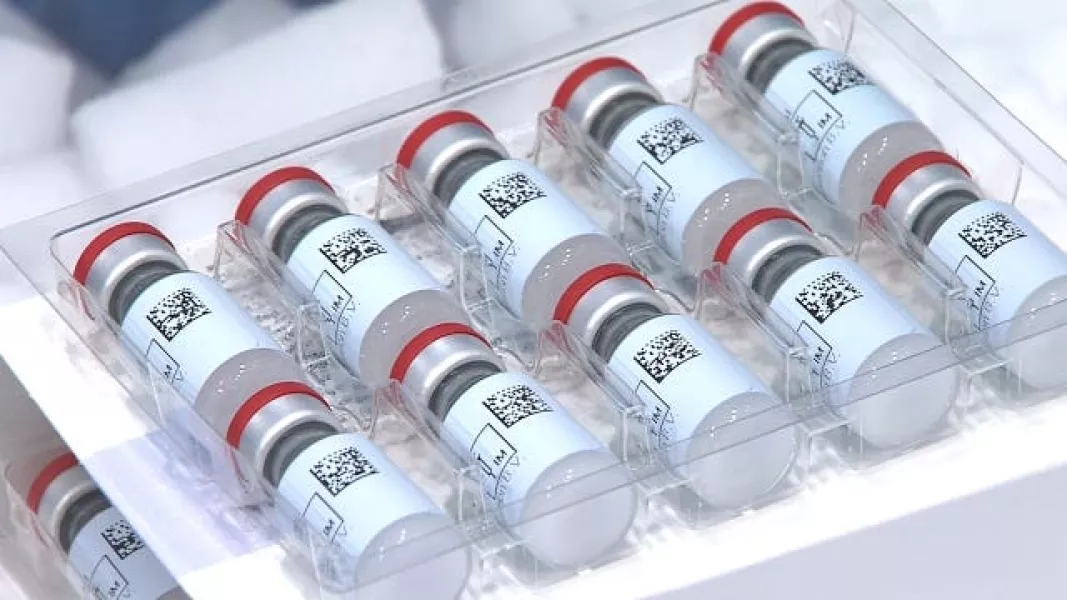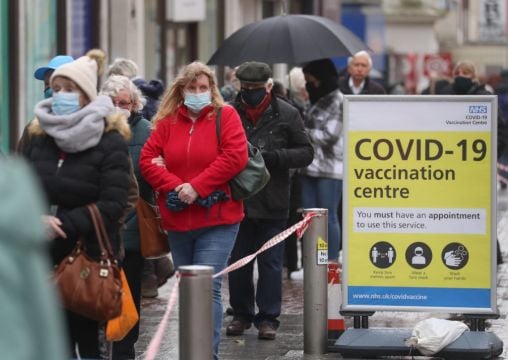The UK government is working with vaccine firms on tackling coronavirus variants, England's health secretary has said, as scientists expressed concern that the strain first identified in the UK has mutated.
As doorstep testing gets under way in eight areas of England to find cases of Covid-19 caused by the South African variant, experts said some samples of the UK variant are now showing the E484K mutation.
The South African and Brazilian variants of coronavirus also contain the E484K mutation, which has been shown to reduce the effectiveness of vaccines in preventing people contracting Covid-19.
However, public health experts believe current vaccines will still be effective against these strains and are good at preventing severe disease.
A report from Public Health England (PHE) shows that sequencing has uncovered 11 cases with the spontaneous E484K mutation from 214,159 samples tested.
Speaking in the UK parliament, Matt Hancock said the British government is working closely with pharmaceutical firms in case vaccines need to be tweaked to accommodate new variants.
He told MPs that the aim of community testing for the South African variant – currently targeting around 80,000 people in eight postcode areas in England – is to “stop its spread altogether”.
The minister also suggested more areas – Bristol and Liverpool – have been added to the list for community testing since the eight postcodes were announced on Monday.
'Worrying development'
Regarding the E484K mutation seen in the UK variant, Dr Jonathan Stoye, from the Francis Crick Institute, said the PHE report suggests the variant is now independently acquiring the E484K change.
“From a virological standpoint, appearance of new variants by mutation during replication cannot be considered surprising,” he added.
“Whether this change will provide significant growth advantages for the novel virus causing it to predominate remains to be seen.”

Dr Julian Tang, honorary associate professor at the University of Leicester, described the finding as “a worrying development, though not entirely unexpected”.
He said it is important that people follow lockdown rules to prevent opportunities for the virus to mutate further, suggesting that allowing spread could provide a “melting pot” for different emerging variants.
“We really need to reduce our contact rates to reduce the opportunities for viral spread (and) replication to reduce the speed with which these different virus variants can evolve,” he added.
Clinical trials for two coronavirus vaccines – Novavax and Johnson & Johnson – have shown the jabs offer some protection against variants with the E484K mutation.
However, they are less effective than against the variant that has been around since the start of the pandemic.
Laboratory studies also suggest vaccines developed by Moderna and Pfizer/BioNtech could work against variants, while variant checks against the Oxford University/AstraZeneca vaccine are ongoing.







